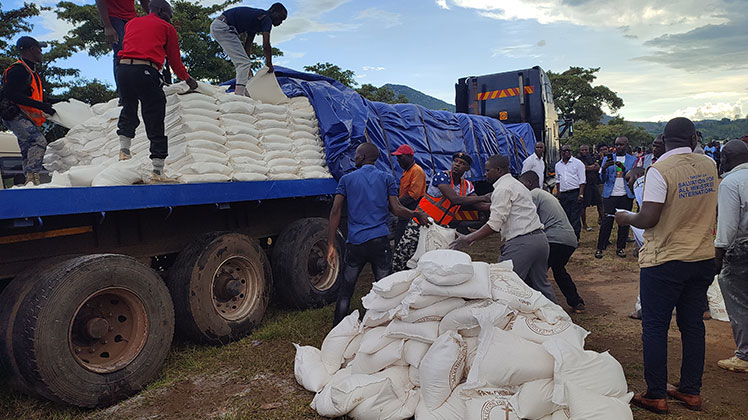Look beyond maize—report
Lilongwe University of Agriculture and Natural Resources (Luanar), Mwapata Institute and Catholic Relief Service (CRS) have urged government to invest in drought-resilient crops and other initiatives to wean the country from its over-dependency on maize.
This is one of the recommendations from a survey titled ‘From Harvest Decline to Food Crisis: The Looming Threat of El Nino-Induced Drought on Food Security in Malawi’ which the two institutions carried out recently.

Reads the study report in part: “Maize emerged as the dominant crop cultivated by 94.7 percent of households. This reflects the central role maize plays in Malawian agriculture as a staple food source.
“However, a concerning trend emerges when examining the drought’s impact on crop health.”
The study is part of a system to monitor food insecurity and household resilience in all 28 districts in Malawi. It is done monthly and has a sample size of about 7 200 households, according to the policy brief developed from the study findings.
The findings paint a gloomy picture that 92.8 percent of farming families in drought-hit districts should not only expect significant reduction in maize production but in other crops as well. But there is particular emphasis on maize as the crop literally defines the country’s food security.
According to the report, nearly half of the households anticipate significant yield losses, 16.9 percent expect complete failure, especially for maize, which is a major cause for concern.
Of the sampled 12 districts, Machinga is the worst-hit with 98 percent of farming households affected, followed by Balaka at 94 percent and Zomba and Phalombe at 92 percent making the Southern Region the worst affected. Chiradzulu, in this list, is the least hit with 84.2 percent, a figure which is still way high.
The other crops worth exploring, it said, are cowpeas, sorghum, cassava, rice, soya and sweet potatoes, all of which have shown some considerable level of resilience.
The study recommendations build on a 10-point strategy, released last October by Luanar’s think-tank Centre for Agriculture Research and Development (Card), to help Malawi mitigate the impact of the anticipated El Nino- induced drought.
Among the 10-point strategies was a call on the government to invest in crop diversification, early warning systems, irrigation and water harvesting technologies as well as mega farms to mitigate anticipated El Nino– induced food crises, among others.
Card executive director Innocent Phanga said they would like to see government and development partners approaching El-Niño – induced food security on two fronts; social protection
and food security.
He said: “The first part should focus on shock-sensitive scalable social protection. Here, government and development partners should find an immediate solut ion to address the food insecurity emergency, especially for poor households with no food.
“The second part is to invest in resilient national food security through megafarms. Here government must think that three months from now, when the food insecurity will be profound, the government and development partners should allocate resources towards irrigated-driven megafarms with the ability to produce high-yielding but early maturing varieties of crops.”
On his part, Mwapata executive director William Chadza also agreed on the need to diversify agriculture diet to reduce the risk.
He said the response to hunger must combine humanitarian response measures with long-term solutions to deal with chronic food insecurity.
“Dry spells and f loods have become an annual occurrence and are here to stay. We need to repurpose our agricultural policies and support programmes towards measures that will increase productivity and production.
Christian Relief Services country representative Sekai Mudonhi said swift and collaborative action is crucial between government and development partners.
“We need to leverage all available data to understand the scope of the food security challenge and target assistance effectively.
“By promoting adaptable, context-specific climate-smart agriculture technologies, we can empower Malawian farmers to weather future storms and build long-term resilience,” he said.
Ministry of Agriculture head of mega farms Alfred Mwenifumbo said they have put in place an irrigation facilitation strategy that will initially install borehole-based irrigation infrastructure in 200 megafarms on a three to five years loan basis.
Last week, President Lazarus Chakwera declared National Disaster in 23 of the country ’s 28 districts due to El Nino-induced drought and called for humanitarian support.





